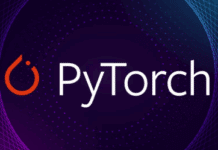The world of open-source software has been a driving force behind innovation and collaboration. Now, with the integration of Artificial Intelligence (AI) and Generative AI, open-source projects are poised to take a leap forward. In this article, we explore the exciting future inventive novel features that AI and Generative AI bring to the realm of open source, empowering developers, fostering creativity, and pushing the boundaries of what can be achieved in the world of software.

- Intelligent Code Generation: AI and Generative AI can revolutionize the process of code generation. These technologies can analyze vast repositories of open-source code, understand patterns, and generate code snippets or even complete modules. This accelerates development, promotes code reuse, and enables developers to focus on higher-level problem-solving.
- Automated Bug Detection and Fixing: By harnessing the power of AI, open-source projects can benefit from automated bug detection and fixing. Machine learning algorithms can analyze codebases, identify potential issues, and suggest solutions or automatically fix common bugs. This speeds up the debugging process and improves the overall quality of open-source software.
- Natural Language Processing for Documentation: AI techniques, particularly natural language processing, can greatly enhance the documentation of open-source projects. These technologies can understand and summarize code comments, automatically generate API documentation, and assist in translating technical documentation into multiple languages. This facilitates better understanding and wider adoption of open-source software.
- Intelligent Issue and Pull Request Management: AI-powered systems can streamline the management of issues and pull requests in open-source projects. Machine learning algorithms can categorize and prioritize incoming requests, assign them to appropriate developers, and even suggest potential solutions based on historical data. This improves collaboration, accelerates response times, and ensures a smoother workflow.
- Intelligent Code Reviews: Generative AI techniques can assist in code reviews by analyzing coding patterns, identifying potential code smells, and suggesting improvements. This helps maintain code quality, enforces best practices, and fosters knowledge sharing within the open-source community.
- Automated Testing and Continuous Integration: AI and Generative AI can enhance automated testing and continuous integration processes in open-source projects. Machine learning algorithms can learn from test results, identify patterns of failures, and intelligently prioritize test cases. This saves time, increases test coverage, and ensures more reliable software releases.
- Intelligent Package and Dependency Management: AI technologies can optimize package and dependency management in open-source projects. By analyzing project requirements, usage patterns, and compatibility, AI algorithms can suggest the most suitable packages, manage version conflicts, and automate dependency updates. This simplifies the development process and enhances project stability.
The convergence of AI and Generative AI with the world of open-source software opens up a realm of possibilities. From intelligent code generation and bug detection to improved documentation, issue management, code reviews, automated testing, and intelligent package management, these future inventive novel features empower developers, promote collaboration, and drive innovation in the open-source community. By embracing these advancements, we can unlock the true potential of open-source projects, making software development more efficient, reliable, and accessible to all.
Dr. Sachin Kumar Agrawal, Head of Artificial Intelligence (AI) H, Sony AI Research, Indian Institute of Technology (IIT) Delhi (PhD) Alumni, Delhi Technological University, DTU (PhD) Alumni (Formerly Delhi College of Engineering, DCE), University of Limerick (UL), Ireland Alumni, Sony Innovation Fund (SIF), Tokyo Japan, Sony Startup Acceleration Program (SSAP), Sweden, Europe, Smart India Hackathon (software Edition), UNESCO-India-Africa Hackathon (software) ( 23 Countries)



















































































